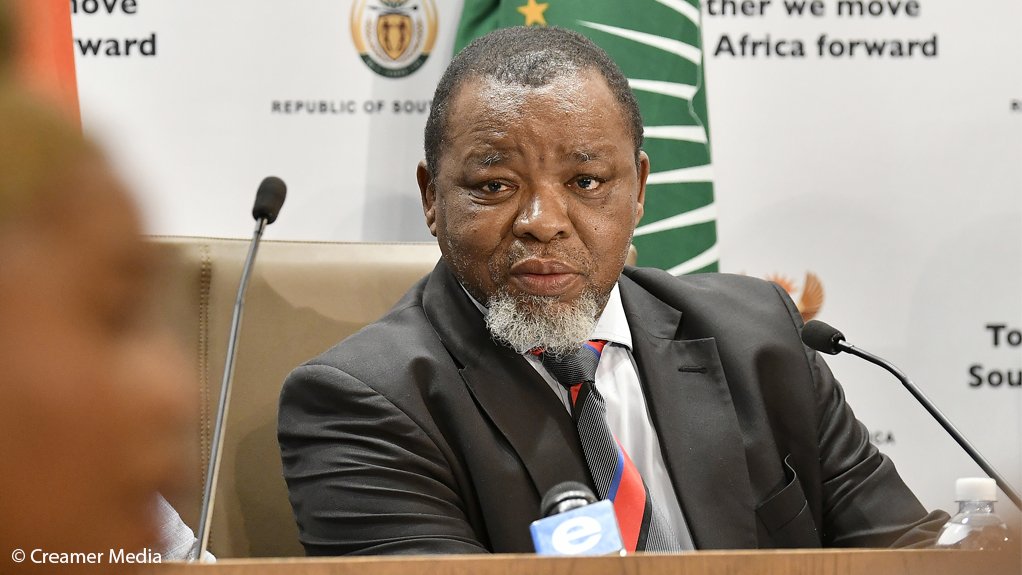Mineral Resources and Energy Minister Gwede Mantashe indicated on Tuesday that his department will seek to “refocus” South Africa’s just energy transition debate as it prepares to finalise its policy on the matter.
In an address to the Africa Energy Indaba on Tuesday, Mantashe indicated that the Department of Mineral Resources and Energy (DMRE) intended initiating “a wide-ranging public dialogue and consultation process in this year” on its ‘Just Transition Framework for the Energy and Mining Sectors’.
A discussion document on the framework, which is separate from the work under way on the issue at the Presidential Climate Commission, was released in November and the DMRE received some initial comments from stakeholders in early January.
Mantashe said the DMRE’s framework would be biased towards mitigating the expected socioeconomic impacts on local mining and energy communities.
“It emphasises reskilling of workers as well as creating alternative economic livelihoods for the communities surrounding such energy utilities and mines.”
However, Mantashe also expressed his opposition to an “accelerated transition”, despite the concept featuring in a political declaration signed between South Africa and several developed countries at COP26 in Glasgow, Scotland, and which included an offer of $8.5-billion in concessional climate finance.
“We must not be ambivalent about the just energy transition debate.
“The assumed pendulum swing, or what others call ‘accelerated transition’, intent on replacing one system with another in a flash, is both irrational and dangerous,” Mantashe said in his speech.
Instead, he said the overall response should be “pragmatic” and place people and their livelihoods at the centre.
“The transition resets present economies, changes the nature of industries; gives newer logics to jobs and skills sets required.
“We, therefore, need to engage with this reality in a pragmatic manner, and refocus the debate away from the narrow techno-determinist view to one that focusses holistically on what this means for developing African societies.”
The transition, he stressed, should “aid development and address historical inequalities, not undermine, and exacerbate them”.
In a panel discussion hosted following Mantashe’s input Thulani Gcabashe, who is nonexecutive chairperson of Standard Bank and executive chairperson of Built Africa, said that tension and contestation over the just energy transition could not be wished away.
However, he argued that priority should be given to planning and execution, with a strong initial focus on the retraining and upskilling of workers in the coal value chain.
The former Eskom CEO also urged developed countries to find ways of transferring funds for the transition to developing countries, which didn’t have the resources on their own to mitigate carbon emissions.
African governments, meanwhile, should focus on creating the investment climates and incentives required for attracting new green industries and to produce the minerals required for the transition.
Mantashe agreed that Africa should be a global renewable-energy “trailblazer” but focused primarily on the fact that the continent had many of the mineral resources required for emerging clean energy systems, rather than on its solar, wind and land advantages.
“Our continent has all the minerals required to drive meaningful development at a fast pace.
“We need programmes to enable economic exploitation, beneficiation and exportation,” Mantashe said, adding that international cooperation and private finance were required to unleash the potential in Africa’s energy resources.
EMAIL THIS ARTICLE SAVE THIS ARTICLE ARTICLE ENQUIRY
To subscribe email subscriptions@creamermedia.co.za or click here
To advertise email advertising@creamermedia.co.za or click here











